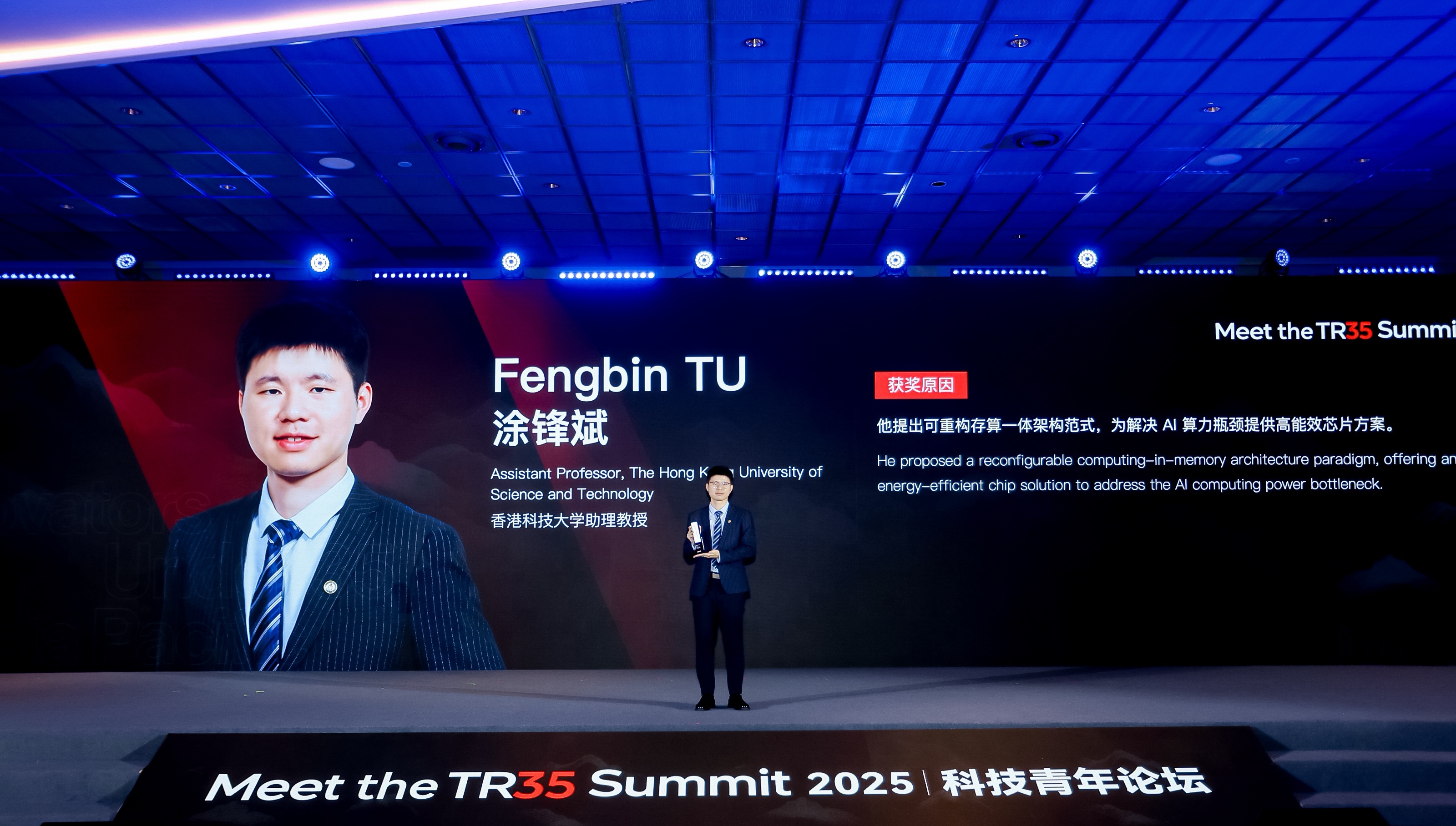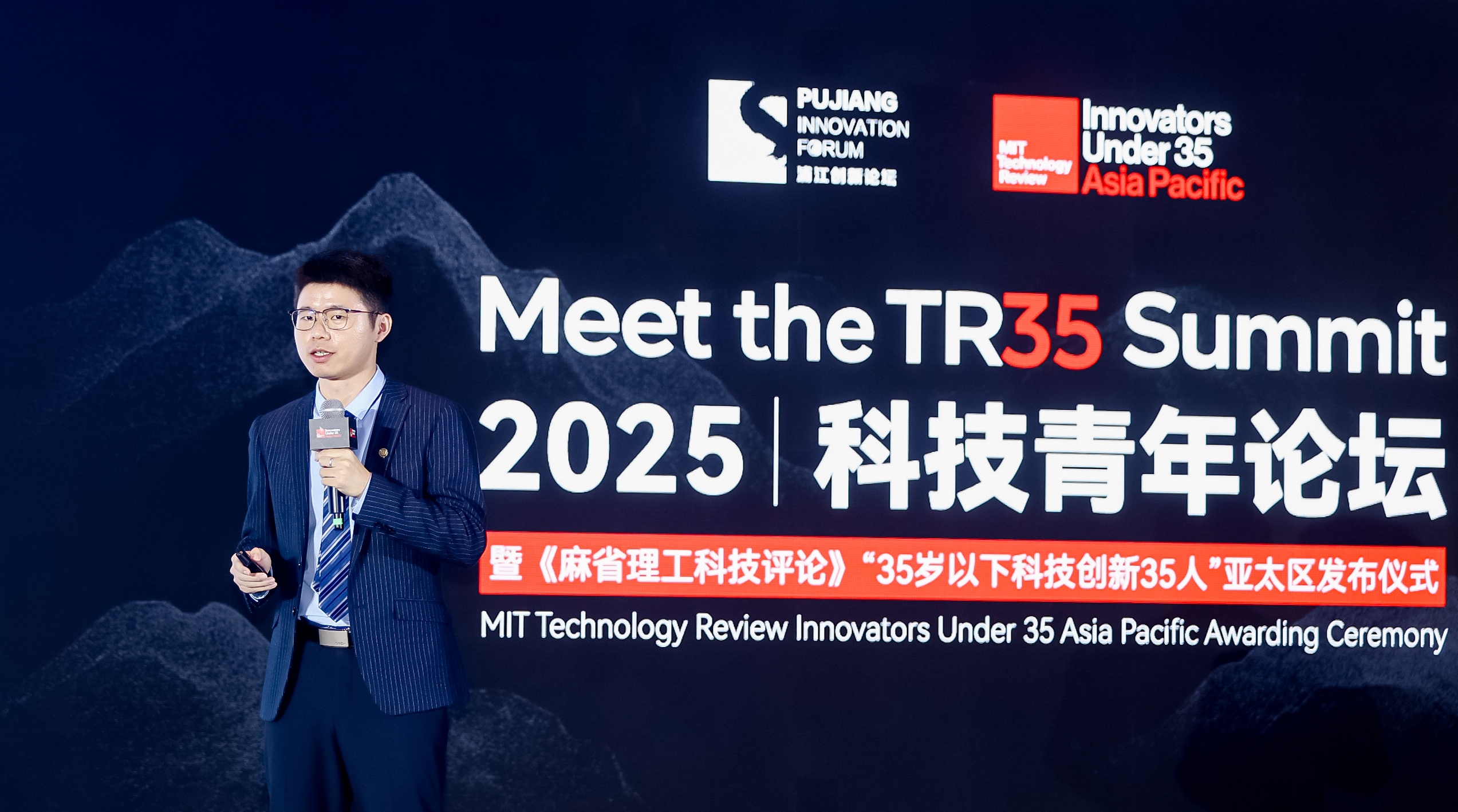Prof. Fengbin TU, a faculty member of the AI Chip Center for Emerging Smart Systems (ACCESS) and an Assistant Professor at The Hong Kong University of Science and Technology (HKUST), has been selected as one of the “2025 Innovators Under 35” Asia Pacific by MIT Technology Review. This renowned honor, revealed on September 22, 2025, in Shanghai, recognizes his contributions to the field of AI chip design.
The “Innovators Under 35” (TR35) list is a globally respected hallmark of excellence, celebrating the young visionaries who are shaping the future of technology. Prof. TU’s inclusion in the Asia Pacific cohort underscores the profound impact of his work in the reconfigurable computing-in-memory (CIM) architecture paradigm, offering an energy-efficient chip solution to address the AI computing power bottleneck.
Prof. TU is an expert in AI chips, computing-in-memory (CIM), and reconfigurable computing. His architectural innovations create high-performance, energy-efficient intelligent systems. He pioneered the reconfigurable CIM paradigm, which integrates reconfigurable computing logic directly into memory. This breakthrough tackles the “"von Neumann bottleneck,” drastically reducing the energy and latency of data movement while supporting diverse AI operators. The resulting ReDCIM processor demonstrates exceptional efficiency in complex tasks like high-performance floating-point operations.
At ACCESS, Prof. TU is a core member of the Codesign Research Team led by Prof. Tim CHENG, the Center Director of ACCESS and the Vice President (Research and Development) of HKUST. He made significant contributions to a commercial-grade AI processor called AC-Transformer, which supports both Convolutional Neural Networks (CNN) and Transformer models. Its memory-compute-aware co-optimization dynamically adjusts resources during different computational phases, achieving system-level efficiency. This research was presented at the 2025 ISSCC (“Chip Olympics”), marking the first AI chip paper from Hong Kong accepted at ISSCC.
We extend our warmest congratulations to Prof. TU for his impressive achievements and look forward to his continued leadership in advancing the AI computing technology.

